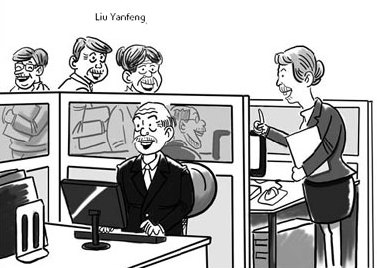Expertise of older workers can prove beneficial
By Hiroyuki Sakai (China Daily)
Updated: 2008-03-25 07:31
Updated: 2008-03-25 07:31
When I worked for Nissan Motor Co, I was sent to Thailand on a number of occasions and ended up living there for a total of 10 years. Some of the Japanese employees who worked at the local office where I was stationed and in companies that I established there returned to Thailand after they retired from the Japanese parent company.
Currently, 10 of them are working there, making use of their technological and business skills, knowledge, experience and personal connections they acquired and developed during their earlier assignments in Thailand.
They are working at local factories of Japanese parts makers and local branches of Japanese trading companies. One works at the Bangkok office of a Malaysian auto assembly company. They are engaged in management, marketing, procurement of parts and materials and other activities.

Having reached mandatory retirement age in Japan, they are making use of their experiences in Thailand to start a new chapter in their lives. Today, Japanese in their 50s and 60s are still intellectually, physically and mentally young. I am happy for the retirees that they can demonstrate their youthful energy in Thailand.
Personally, though, I feel it would have been better if they had put their overseas experiences to good use in Japan. At a time when the workforce is shrinking because of declining birthrates and the aging of society, Japan should make better use of its older workers.
Without question, the retirees are contributing to the advancement of Thai industries. The skills they are providing to local companies can only help to bolster Thailand's gross domestic product. In that way, they are playing the role expected of Japan as a leading economy.
From the viewpoint of Japanese employers, retirees make up for Japan-based employees who have little overseas experience, and thus are making a positive contribution to Japanese companies - albeit indirectly.
People in the so-called postwar baby boomer generation are entering their 60s and reaching retirement age en masse. Meanwhile, as economic globalization advances, businesses are shaving costs to turn profits. Reduced payrolls are part of the process of corporate restructuring.
As a general policy, companies in Japan are not eager to replace employees who quit. Moreover, because of shortcomings in education, I think the level of knowledge and technical skills of young people who were born and came of age after Japanese society attained affluence is below that of baby boomers who attended school soon after World War II.
In order to make young people useful, companies need to provide in-house training. But in addition to technical training, they need to learn discipline so that they are recognized as responsible members of society. Already, some companies are facing difficulties in moving forward as engineers and highly skilled workers retire en masse. In short, companies are about to face a dearth of personnel resources.
Older workers offer a potential resource. Just because they reached retirement age, companies should not indiscriminately dismiss them. Regarding the mandatory retirement age, I believe companies should not only extend the age limit but consider the abolition of the mandatory retirement age altogether or introduce a system to re-employ retirees.
Traditionally, Japanese employees had lifetime employment and were known for showing loyalty to their employers.
That, in turn, proved to be one of the strengths of Japanese companies as they advanced internationally. By extending or abolishing the retirement age, companies can not only recover that "weapon", but it will also help them enhance their product development ability as well as contributing to streamlining operations and quality maintenance.
At the same time, for older people, employment security gives them peace of mind and motivation to cope with old age. Consequently, it leads to the stability of families and local communities.
Occasionally, I hear arguments calling for the introduction of foreign workers to make up for a shortage of labor that Japan will eventually face.
Personally, I'm against liberalizing the market to allow for an influx of unskilled workers. Such a move would undoubtedly have a negative effect on society. It would also help trigger the trend for lower wages and part-time and irregular employment.
Such practices will eventually affect Japanese workers, leading to lower product quality and services. This, in turn, will reduce the ability of Japanese companies to expand, thereby undermining Japan's economic strength as a whole.
By employing and keeping older employees until they reach 70 or so, Japanese companies can make do without significant foreign workforce levels.
Additionally, there is no reason for companies to become targets of criticism for not hiring more foreign nationals in Japan, given that many firms have set up production bases overseas and already employ a large number of local workers.
Manufacturing is not the only sector of the economy that must treat people with respect. The same goes for agriculture and commerce.
I urge companies to make good use of older workers and end their reliance on nonregular employees. Only through mutual trust will the domestic economy recover.
The author is a former executive of Nissan Motor Co The Asahi Shimbun
(China Daily 03/25/2008 page9)
|
|
|
|